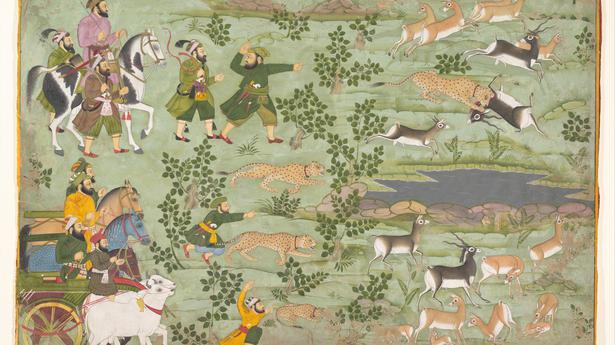
Now, an encyclopedia on Indian art, courtesy MAP Academy
The Hindu
The educational wing of Bengaluru’s Museum of Art and Photography has made it simpler to access all art-related information
What if everything you wanted to know about Indian art — sculptures, miniatures, fabrics, paintings, pottery and more, could all be sourced from one place? The illustrious team at the Museum of Art and Photography (MAP) in Bengaluru have done just that with their Encyclopedia of Art — an amalgamation of many years of work. Not only that, they have also disseminated their expertise in the form of online courses, which anyone can access.
A little over three years ago, the Bengaluru-based team at MAP began working on collating the information they had. “The driving idea behind the project was the lack of art history being taught in India as an actual subject as part of school curriculum. It is barely taught at the undergraduate level, with only a small part covered in art courses,” says Nathaniel Gaskell, founder-director of MAP Academy, the educational wing of MAP.
“With a lack of art history being taught as a discipline, we began working on online courses to make sure there was a full-on curriculum anybody could log in to and learn,” he adds.
Nathaniel says he began with a small team which eventually grew and now comprises 25 full time staff as well as 12-15 advisors.
Launched on April 22 this year, the Encyclopedia was formed out of a need to create an online resource of knowledge. “While a lot of scholars and academics all around the world are involved in different areas of research, a lot of that knowledge is either inaccessible or written in scholarly language. Unless one is an expert or has studied art history, they won’t be able to understand that information,” says Nathaniel.
Associates at MAP Academy, research a topic or a particular period of history and then editors help them to turn that information into more readable text, following a particular style guide and maintaining a bibliography for every entry. Given the nature of this expansive subject, content will continually be modified and added to the modules.
“One can argue about the need for an encyclopedia where there is so much information online. However, the point is, where do you look for it? Is it factual? Is it accurate? Is it certified in some way? We thought there was a real need for and it could really serve a whole cross section of people because this is not just for students or researchers, but for anyone interested in these topics,” says Abhishek Poddar, founder of MAP.











